実り多き人生。
INFPタイプのメレディス・フラーは、45年間連れ添った魂の伴侶との豊かな出会いを重ねながら、実りある人生を歩んできた方です。
モデル、女優、映画・ドキュメンタリー制作者、著者、心理学者、ミステリーパーティーの主催者、そして愛犬家。
オーストラリアの心理タイプ協会(AusAPT)の運営委員としてご一緒している仲間でもある彼女の歩みを知り、あまりの多才ぶりに心から驚かされました。
インタビューでは、運命のパートナーとの出会い方をはじめ、メレディスが見出した「性格タイプと家庭内暴力の関係性」、そして「健全な社会のために必要な要素」など、幅広いテーマに触れています。
メレディスについてもっと知りたい方は、こちらをご覧ください:
👉 https://lnkd.in/gibjePQi

はるみ: ではメレディス、ご自身のご家庭について教えてください。
メレディス: 母はINTPタイプで、シングルマザーとして私を育ててくれました。
生活保護を受けながらの暮らしだったので、経済的にはとても貧しかったのですが、本や読書、探求、そして人生の意味にあふれた、豊かな日々を過ごしていました。
母は「教育こそが人生を切り拓く鍵だ」と理解していた人でした。
私は、母ととても深い絆でつながっていました。
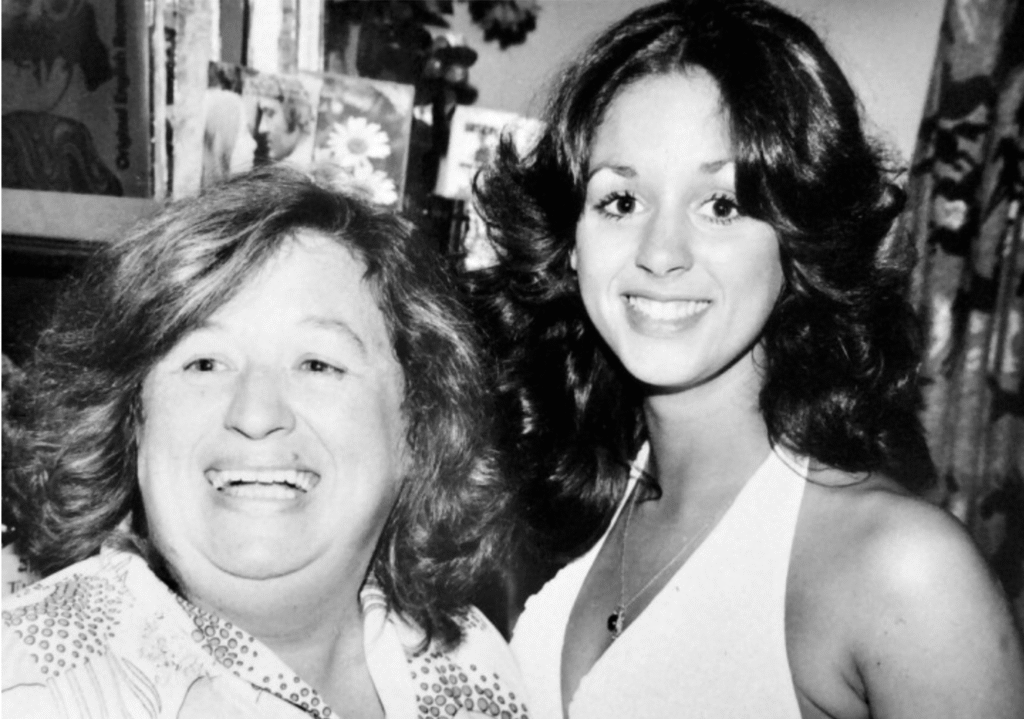
はるみ: 子どもの頃のモデル時代の写真を見ましたよ。お母さまは「ステージママ」だったんですか?
メレディス: いえいえ、そんなことはありません。
母はとても内気で静かな人で、私に何かを期待するようなことはありませんでした。
ただ、「恵まれていない人を助けること」と「好奇心を持つこと」だけは大切にしてほしいと思っていたようです。
母は14歳のとき、父(私の祖父)が家族を残して去ったことで学校を辞めなければなりませんでした。
それからはすべてを独学で学び、いつも読書をしたり、世界のことを考えたりしていました。
私が興味を持ったことを尊重してくれて、学びたいこと、心が動くことを追いかけるのを応援してくれました。
私はずっと、心理学者と作家になりたいと思っていました。そして実際に、心理学者にも作家にもなることができました。
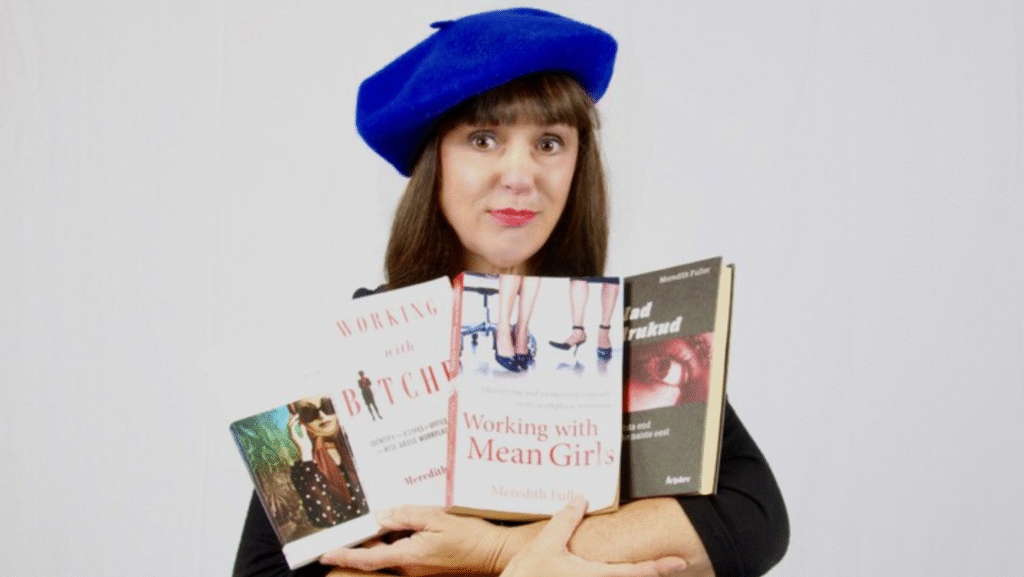
─ 職場の攻撃的な人間関係を見極め、自分を守るためのガイド
はるみ: 子どもモデルを始めたきっかけは何だったんですか?
メレディス: モデルは3歳半から12歳までやっていました。
お店の中で、自分を楽しませるために歌ったり踊ったりしていたんです。
そんなある日、アソル・スミスという国際的に有名な写真家と、彼の妻のバンビが私を見かけて、母に声をかけてくれたのがきっかけです。
私にとっては、家計を少しでも助けられることが嬉しかったですね。
そしてずっと後になってMBTIを学んで、「自分が“表現するINFP”なんだ」と気づきました。
実際、INFPの俳優って、けっこう多いんですよ。
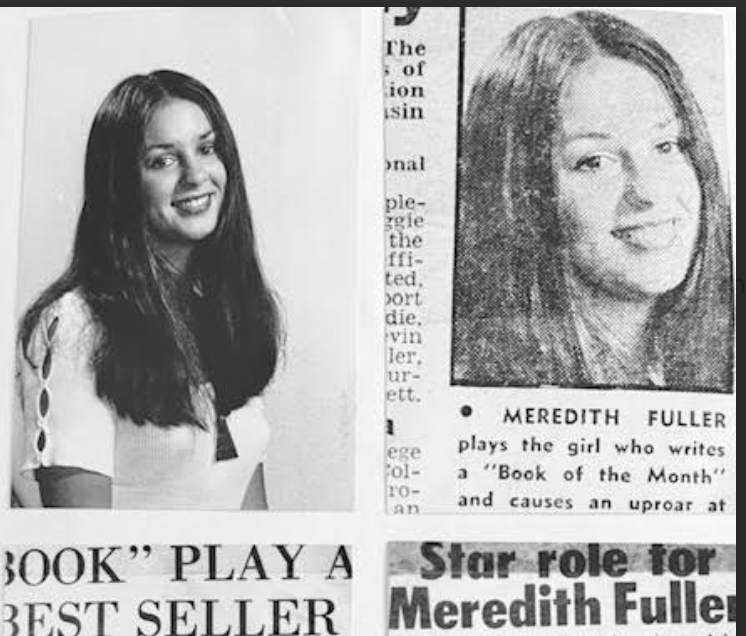
はるみ: わあ、面白いですね。
表現することが、あなたの創造性のニーズに応えていたんですね。
だからモデルや演技も楽しかったわけですね。
メレディス: そう、モデルも演技も本当に好きでした。
でもそのあと家に帰って、本を読むのも同じくらい好きでした。
弟はISFPタイプです。
彼は家を出て、今はバイロンベイに住んでいます。
あそこはヒッピーたちの街ですね。
はるみ: お父さまはどんな方だったんですか?
メレディス: 父は…問題のある人でした。
ESTPタイプで、私が3歳のときに母を置いて出ていきました。
実は父は中国系で、母親(つまり私の祖母)は中国人、父親はイギリス人でした。
二人は上海で結婚したんです。
1941年の戦争の時、父はスタンレー刑務所に収容され、家族は香港から避難して船でオーストラリアのメルボルンへたどり着きました。
そして、そのメルボルンでESTPだった父と、私の母が出会ったんです。
母は、やはり夫(私の祖父)に見捨てられていた祖母と一緒に暮らしていました。
祖父も父と同じくESTPタイプでした。
だから父は、母と祖母の家に居候するのが都合がよかったのでしょう。
父には家庭を築く意思も、経済的に支えるつもりもありませんでした。
はるみ: おばあさまとは仲が良かったですか?
メレディス: いいえ、彼女の関心事が、私には理解しづらかったですね。
祖母はESTJタイプで、ガーデニングが好きで、数学にも興味があって、郵便局で働くことを楽しんでいました。
何でも自分で仕切りたがる人でした。
とてもきちんとしていて、対照的に母は混沌としていて、それは私にも似ています。
はるみ: お父さまと一緒に暮らしていた時の記憶はありますか?
メレディス: はい、あります。
でもひどいものでした。
とても暴力的な人でした。
はるみ: その経験は、あなたの世界の見方に影響を与えましたか?
メレディス: ええ、間違いなく影響しました。
本当に。
はるみ: どのような影響を受けたのでしょう?
メレディス: 「人間関係は本当に大事なものだ」ということを、強く実感するようになりました。
だから私は、大人になって結婚するときは、対等な関係で、お互いを尊重し合える人と結ばれたいと思っていました。
伝統的な役割に縛られるのではなく、対話と理解がある関係を望んでいたんです。
はるみ: では、ご自身の結婚についても教えてください。
メレディス: 小学校の頃、古典文学ばかり読んでいて、「世の中には本当に素晴らしい男性がいる」と思っていたんです。
そして「私もそんな人と結ばれたい」って。
はるみ: たとえばどんな本に、どんな男性が出てきたんですか?
メレディス: たとえば『高慢と偏見』のミスター・ダーシーのような男性です。
今ふと思い出しましたが、小説の中にはいつも“嫌な男”と“素敵な男性”の対比があって、私はいつも後者──誠実で、倫理的で、思慮深い男性に惹かれていました。
そして実際に私の夫ブライアンは、INFJタイプで心理療法士をしており、20年間、自分の心理療法のクリニックを運営していました。
それ以前は、盲導犬協会でクライアントサービス部門を担当していて、動物や人のリハビリ支援など、“助ける”ことに関わってきた人なんです。
はるみ: ブライアンさんとは、どこで出会ったんですか?
メレディス: 大学院のディプロマ課程を受けていたとき、ブライアンの弟を通じて知り合いました。
当時、私が働いていたジャーナリストのモーナ・スターラック博士という方がいて、彼女は私より50歳くらい年上だったんですが、「気になる人がいたら、“兄弟いる?”って聞いてみなさい」ってアドバイスをくれたんです(笑)。
それで1980年、大学院で勉強していた頃に、ある友人に「ねえ、兄弟っている?」って軽く聞いてみたら、「いるよ!しかも君たち、絶対気が合うと思う」って言ってくれて。
そして彼が、ブラインドデート(お見合いのようなもの)をセッティングしてくれたんです。
ブライアンは、人を助けたいという気持ちが強くて、詩を書くのも好きで、“意味を探究する”ような感性を持った、とても繊細な人でした。
私たちはすぐに意気投合しました。
「この人が運命の人だ」と直感でわかりました。
そして彼も同じように感じてくれたんです。
それ以来、ずっと一緒にいます。
結婚してもう45年になります。
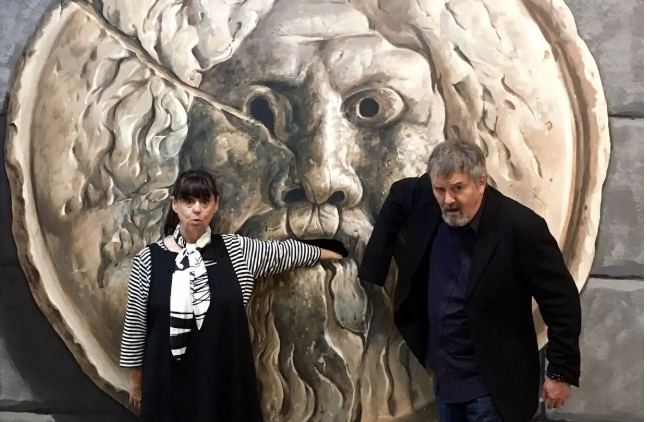
はるみ: わあ…。
「この人が運命の人だ」と感じた、その感覚についてもう少し詳しく教えてもらえますか?
メレディス: 出会ったときから、私たちは“意味のあること”について語り合っていました。
本の趣味も音楽の趣味も似ていて、人を助けたいという思いも共通していて。
お互いを尊重し、興味を分かち合い、理解し合える──そういう感覚が自然にあったんです。
理屈じゃなく、ただ「わかる」という感覚でした。
はるみ: すごく興味深いですね!
では、その後のお話を聞かせてください。
卒業して、運命の人に出会ってから、どうなったんですか?
メレディス: 卒業後、3〜4年にわたって、ゲルトルード・スペンサー博士のもとでセラピーを受けることにしました。
彼女は精神科医であり、ユング派の夢分析家でもありました。
その後、しばらく公的機関で働いたあと、大学のキャリアカウンセリングサービスの運営を担当することになりました。
そこで、相談者たちがキャリア支援を求める“目的の違い”に気づいたんです。
ある人たちは単に「お金を稼ぎたい」から来ていて、別の人たちは「意味のある仕事をしたい」と思って来ていました。
やがてMBTIに出会い、これは性格タイプの違いだと理解するようになりました。
その1年後、イアン・ケンドールという心理測定の専門家(INTPタイプ)と出会いました。
彼はACER(オーストラリア教育研究評議会)で働いていた方です。
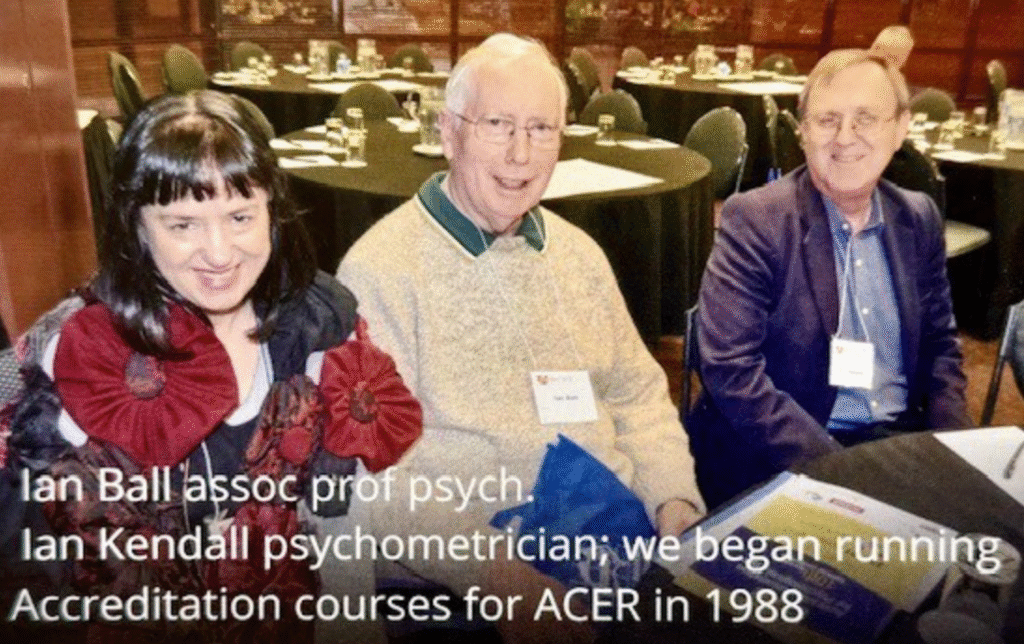
メレディス: 1980年代のオーストラリアでは、「トレーニング保証法(Training Guarantee Act)」という法律があり、すべての組織が、一定額を人材育成に予算として割り当てる義務がありました。
当時、マイヤーズ=ブリッグス理論(MBTI)は新しく、ポジティブな印象を持たれていたため、ワークショップへの関心が高まり、多くの人が「自分もMBTIの認定を受けてワークショップを開きたい」と思うようになったんです。
ACER(オーストラリア教育研究評議会)は、大学など高等教育機関向けに豊富な教材や資料を提供しており、MBTIの認定制度を立ち上げたいと考えていました。
そこでイアン(ケンドール)が「一緒にやってみないか」と声をかけてくれたんです。
当時、私は大学勤務を辞めて開業したばかりだったので、コンサルタントとして参加することにしました。
そして、私たちは最初のタイプ認定コースを設計しました。
はるみ: その認定コースについて、もう少し詳しく教えてください。
メレディス: 5日間のトレーニングコースでした。
イアンが数学や統計の部分を担当し、私はタイプ理論や対人関係に関する内容を中心に担当しました。
その後、イアンがプロジェクトを離れ、別のメンバーが加わったのですが、哲学的な方向性が合わなかったため、私もその場を離れることにしました。
彼らは1年ほど自分たちでコースを運営しようとしましたが、知識が十分でなかったようです。
そこで新たにINTPタイプのピーター・ゲイヤーが招かれ、認定コースの運営を引き継ぎました。
その頃は他にも、メアリー・マギネスやデヴィッド・フリーマンといった方々が、それぞれ独自の認定コースを展開していました。
一時期、複数の団体がそれぞれ認定コースを運営していて、たとえばデヴィッド・フリーマンのコースはビジネスや企業向けの色が濃かったですね。
一方で、教育的・スピリチュアルな要素を含むものや、グループトレーニングに特化したコースもありました。
誰がどのコースを運営しているか、クライアントの取り合いになっていないか、そういったことで軋轢が生まれることもあって、私はそういう雰囲気が苦手だったので、きっぱりと身を引くことにしました。
2000年に「トレーニング保証法」が廃止されて以降、トレーニングや認定制度の需要は一気に減っていきました。
はるみ: メレディスご自身の“トレーニングの持ち味”は、どのようなものだったと思いますか?
メレディス: 私のトレーニングのスタイルは、「体験的」で、「今この場にいる人たちの存在に目を向け、大切にする」ことを重視していました。
ビクトリア州では、ミーティングやグループアクティビティをよく開催していました。
たとえば「ユングを殺したのは誰?」というテーマで、ミステリーディナーを開いたこともあります(笑)。
参加者にはそれぞれタスクが与えられて、ペアになって家中を駆け回りながら、「誰がユングを殺したのか?」を推理するんです。
そして1991年には、ACERとメアリー・マギネスの支援のもとで、最初のMBTIカンファレンスが開催されました。
デヴィッド・フリーマンはMBTIに関心が深く、何か形にしたいという想いから、のちにAusAPT(オーストラリア心理タイプ協会)となる団体の設立に動きました。
1992年以降、2年ごとの全国カンファレンスが開催されるようになり、多くの人がトレーニングを受け、協会に参加するようになったことで、コミュニティはどんどん大きくなっていきました。

メレディス: カンファレンスには、毎回何百人という参加者が集まりました。本当に大規模で、MBTIが広まり始めた当初の熱気はものすごかったです。
トレーナー、心理士、ソーシャルワーカー、教師、そして人事担当者など、あらゆる分野の人が参加していました。
はるみ: そんな中で、なぜずっと関わり続けてきたのですか?
メレディス: このツールと理論が心から好きなんです。
もう45年近く使い続けてきました。
実は、私がこれまでに担当したすべてのクライアントのタイプを一覧にまとめたことがあるんです。
何千人という方を見てきましたから。
そして興味深いことに──驚かないかもしれませんが──キャリアカウンセリングを受けに来るタイプで多かったのは、INFP、ENFP、INTPの人たちでした。
次に多かったのは、INFJ、INTJで、ENTJの人たちは、組織から「受けるように」と送り込まれてくるケースが多かったですね。
逆に、STJやSTPタイプの人は、ほとんど来ませんでした。
私が支援していたのは、「職場に馴染めない」「人間関係がうまくいかない」「迷いや孤独を感じている」「何かが噛み合わない」と感じている人たちです。
AusAPTのコミュニティは、直感型(N)の人たちでいっぱいでした。
一方、当時のオーストラリアの企業や組織の多くは、感覚型(S)の人たちが中心でした。
そんな中で、「人間とは何か」「理論を通じて人を理解したい」「世界をより良くしたい」と願う人たちが集まっていた。それがとても自然で、私にはぴったりだったんです。
私は1992年からAusAPTに関わっていますが、ビクトリア支部ではミーティングや楽しいグループアクティビティをたくさん開催してきました。
はるみ: 直感型(N)の人たちは、社会の中でどんな役割を担っていると思いますか?
メレディス: 「こうなったらいいな」と夢を見る力、そして「その可能性を探ってみたい」という探究心を持っていることですね。
彼らには、未来への希望があります。
そしてその希望を胸に、未知の世界を旅し、好奇心の赴くままに探求し続けます。
2000年代初頭のAusAPTのカンファレンスでは、INFPのエリザベス・マーフィーが基調講演を行ってくれました。
彼女は当時から、「子どもの育て方を真剣に見直さないといけない」と訴えていて、
「私たちは、子育てという極めて重要な営みに、時間もお金も労力もかけていない。
これでは、いずれ社会は大変なことになる」と語っていました。
メレディス: エリザベス・マーフィーの言葉は、まさに「予言的」でした。実際、彼女の言うとおりのことが起きたのですから。
はるみ: もし過去に戻れるとしたら、オーストラリアでは何ができたと思いますか?
メレディス: オーストラリアが抱える問題のひとつは、社会が非常に家父長的(パトリアーキー)だということです。
つまり、子育ては女性の責任とされ、男性はほとんど関与しません。だから、小学校の教員に男性がとても少なかったんです。
もうひとつ、「AusAPTがやるべきだったのでは」と後になって思うのが、ある基調講演者の指摘です。
2000年代初頭に、ピーター・オコナーというユング派のセラピストが基調講演を行いました。
彼はこう言ったんです──
「あなたたちの組織はうまくいかないだろう。なぜならSJタイプの人が少なすぎるから」
そして、「このままだと持続せず、崩れていく」と。
彼の予測もまた、的中してしまいました。
ご存じのように、かつては何百人という会員がいて、ものすごい活気があったのに、
マイヤーズ=ブリッグスを学んだ人たちの多くが、継続的に関わることはなくなっていきました。さらなる発展的な学びに取り組もうと、私たちも働きかけはしたんですが。
Sue Whiteさんやピーター・ゲイヤーは、Step 2 や Step 3 のトレーニングを提供していましたが、より深い内容に進もうという人は多くありませんでした。
そして、人々の関心は「新しくて、キラキラしていて、すぐ結果が出るもの」へと移っていったのです。
その結果、多くのメンバーが離れていきましたし、年月の中で亡くなられた方も少なくありません。
そしてCOVIDがやって来る頃には、AusAPTには多くの歴代会長や財務担当、役員がいました。
2017年にテリー・コネランが会長に就任し、彼女はテクノロジーやマーケティングに非常に長けた方でした。
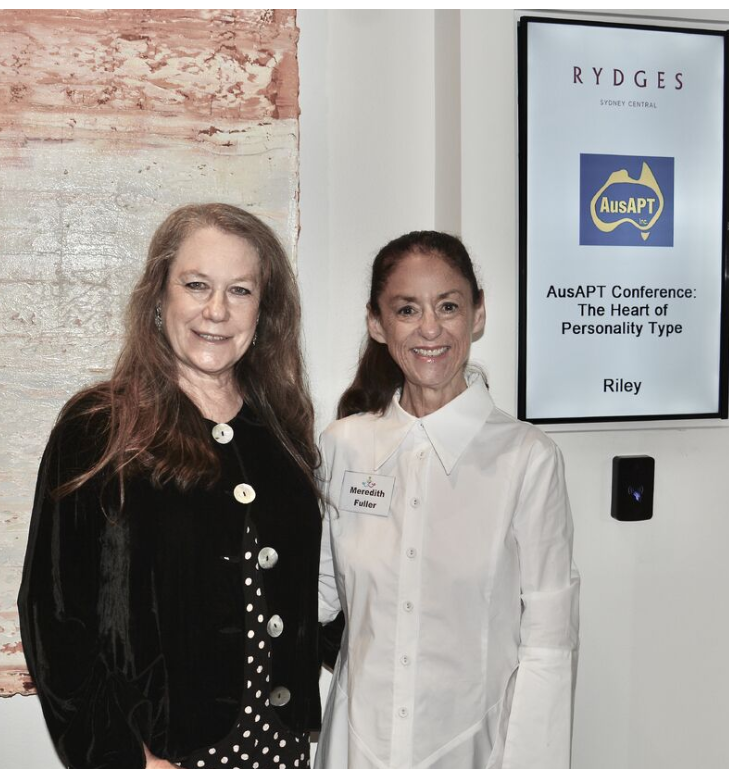
メレディス: テリー・コネランがZoomでのカンファレンスを企画してくれたことで、新しいテクノロジーに対応する形も少しずつ生まれました。
そして、それはとても成功しました。
はるみ: そして今、残念ながらAusAPTは解散の時を迎えようとしていますね。
ここからは、家庭内暴力の分野でのあなたの活動についてお聞きしたいです。
性格タイプの知識とどのように関わっているのでしょうか?
メレディス: はい、もちろんです。
私は暴力のある家庭で育ちました。
その経験から、「女性たちが“危険のサイン”を理解し、選択肢を持てるようにしたい」と強く思うようになりました。
私がいつも驚かされるのは、カップルの多くが、互いのことを深く知らないままパートナー関係に入ってしまうということです。
「私は何者なのか?」「私たちはどんなふうに関係を築いているのか?」「意見がぶつかったとき、どうやって解決するのか?」「あなたはこの問題についてどう考える?」──
そんな基本的な会話すらしないまま、「なんとなく」で結婚してしまうんです。
子どもを望むかどうかさえ、話し合わないことも多い。
だからこそ私は、人々がよりよい人間関係の選択をするための支援がしたいと思いました。
また、特に男性に多い傾向として、「恥の感情」「力への欲求」「コントロール欲求」などを通して、自分の感情を表現している場合があると感じています。
その結果、暴力という形で感情を発散してしまうんです。
本当は、男性たちにも「自分の気持ちを言葉で表現する力」が必要です。
けれど、多くの場合、その言語が育っていない。だから暴力でしか感情を表せない。
でも今の若い世代──10代から20代前半の若者たちは、希望があります。
彼らの多くは、もう「古いタイプの関係性」や「昔ながらの家族の形」にとらわれたくないと思っています。
たとえば、
「彼が家にいて子育てをする。私が働く。それでいい」
「ふたりでパートタイムで働いて、子育ても一緒にする」
「ふたりで旅をする」
あるいは「パートナーではあるけれど、一緒に暮らさなくてもいい」
そんな新しい形を柔軟に考えられる若者たちが増えていて、私はとても希望を感じています。
メレディス: 若い世代は、本当に新しい関係性のモデルを模索しています。そして今の若い男性たちは、仲間がセクシズムを表現したり、権力や支配を見せつけたりしたときに、「それはおかしい」と声を上げることができるようになってきました。
それって本当に素晴らしいことです。確実に少しずつ変化は起きていると感じます。でも、やっぱり簡単ではありません。
男性にとっては特に難しい。なぜなら、私たちの社会はあまりにも固定的だったからです。「感情的な男性なんてごめんだ」という空気が強くて、「理想の男性像」はISTJタイプのような人だった。
オーストラリアの典型的な“理想の男”は、ISTJ、ISTP、ESTJのようなタイプだと言われてきました。
でも最近は、創造性を受け入れ、自分の“心の人生”を生きようとする男性が増えていて、それは本当にワクワクする変化です。
NFタイプでなくても、男性たちが創造的な活動に関わったり、自分の感情を表現する練習をする──そういうことが、人間としての成長にとても役立つのです。
はるみ: ブリスベンのAusAPTカンファレンスでは、家庭内暴力についてご発表されていましたね。
メレディス: はい、男性による暴力には3つのタイプがあることをテーマにして、その違いについて話しました。
多くの人が知っているのは、まず1つ目、「強制的な支配(coercive control)」です。
典型的な“権力と支配”を基盤とした暴力で、最終的に殺人に至るケースもある深刻なものです。
はるみ: ご発表の中で、このタイプの典型としてESTJタイプを挙げていましたよね?
メレディス: はい、その通りです。ESTJタイプに多く見られます。
2つ目は、薬物やアルコールなどの影響を受けたタイプです。自分が何をしているのかも分からないような状態で、精神的にも不安定。こうしたケースでも人が命を落とすことがあります。
このタイプに多いのは、INFP、ISFP、INTP、ISTPなどです。
また、NFやSFタイプは、依存症になりやすい傾向があることもわかっています。
そして、3つ目の暴力のタイプがあります。
これはアメリカや日本でも見られるかもしれませんが、「主体性や責任感の欠如」による暴力です。
このタイプの男性は、流されるように生きていて、よく高学歴・高収入の女性とパートナーになります。自分は働かずに家にいたり、ミュージシャンやアーティストであまり稼ごうとしなかったり、職を転々としたり。
「まあこのままでいいか」と思って日々を送っているのですが、ある日、何かのきっかけでスイッチが入ります。
たとえば、パートナーが「子どもを持ちたい」と言い出したり、「もうバリバリ働くのはやめたいから、あなたが働いて」と言ったりしたとき。
すると、彼らは“追い詰められた”“自分の自由が侵された”と感じて、激しい怒りを爆発させます。
そして最悪の場合、パートナーや子どもを殺してしまうのです。
近所の人たちは「とても感じのいい人だったのに、信じられない」と言います。
けれど彼らは、「自分の楽な生活を壊されたくない」「責任を負いたくない」──そんな感情から、破滅的な行動を取ってしまうんです。
はるみ: こうした傾向には、特定のタイプが関係しているのでしょうか?
メレディス: 多くは内向型(I)の男性ですね。
ここでまた、エリザベス・マーフィーが言っていた「子どもたちへの育て方」の話に戻ってきます。
最近は、男性で幼児教育の現場に入る人も増えてきて、小学校教員としての男性の登用にも取り組んでいます。
はるみ: なぜ、男性が幼児教育に関わることが大切なのでしょうか?
メレディス: 子どもには、男女両方の“あり方”を見せることが必要だからです。
女性は「関係性を築くこと」「話し合うこと」「感情を表すこと」が評価され、
男性は「黙って耐えること」「強くあること」が求められる──
こんな社会の構造では、健全な人間関係は育ちません。
子育ては、決して女性だけの仕事ではありません。
私たちの社会は、「誰が一番お金を稼ぐか」で人を判断すべきではないんです。
もっと多くの男性に育児や教育の現場に関わってほしい。
そして、それを積極的に後押ししていく必要があります。
はるみ: 最後にひとつだけ。どうして“ミステリーディナー”をやっていたんですか?
メレディス: タイプコミュニティには、「タイプについて話す人」は多いんです。
でも、「タイプを“生きている”人」は案外少ないんですよね。
つまり、タイプについて語るばかりで、自分の行動を振り返ったり、実際に体験から学んだりしない。
私はそれがずっと気になっていました。
だから20人ほどのメンバーを集めて、活動を通じて自分の行動を見直すような場をつくりました。
ミステリーの事件を解くチームを組ませて、「誰が犯人か?」を協力して探らせるんです。
その中で、自然と自分の反応や癖が出てくる。
競争や時間制限がある“本物の状況”に置くことで、その人らしさや行動パターンが浮き彫りになります。
それをフィードバックすると、「ああ、そういうことか」と気づきが起きるんです。
だから、ただ“話すだけ”ではダメ。
やっぱり、自分で“やってみること”が一番大切なんです。
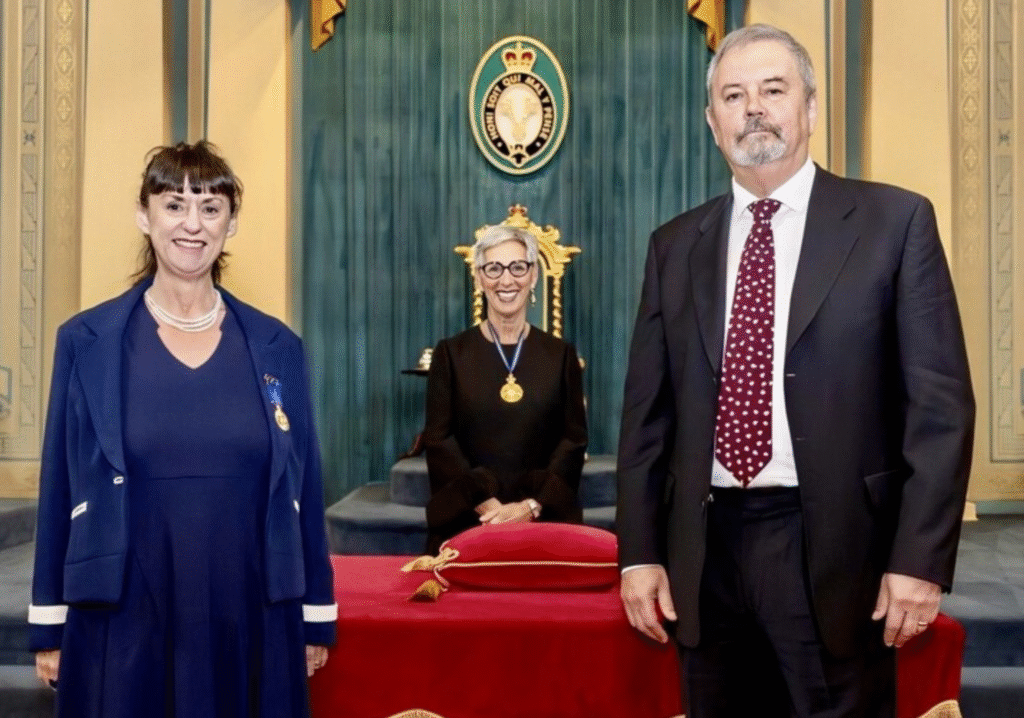
取材・文 権藤晴美
※インタビューオリジナル全文※
A life of accomplishment.
Meet INFP Meredith Fuller who has lived a life of meaningful encounters alongside her soulmate of 45 years.
Model, actress, film and documentary creator, author, psychologist, murder mystery party hostess, dog mother.
I was absolutely AMAZED by all the things that my fellow AusAPT: Australian Assoc'n for Psychological Type Inc management committee member has been able to accomplish in her life.
The interview covers a smattering of topics including finding your soulmate, patterns that Meredith has discovered between Personality Type and Domestic Violence, what is needed for healthy societies.
To learn more about Meredith check her out here: https://lnkd.in/gibjePQi

Harumi: So, Meredith, tell me about your family of origin.
Meredith: So my mother was an INTP and she was a single parent who raised me on a pension and so while we were financially very poor, we were rich in books, reading, exploring, meaning, and she knew that education was the way through.
I was very close to my mother.
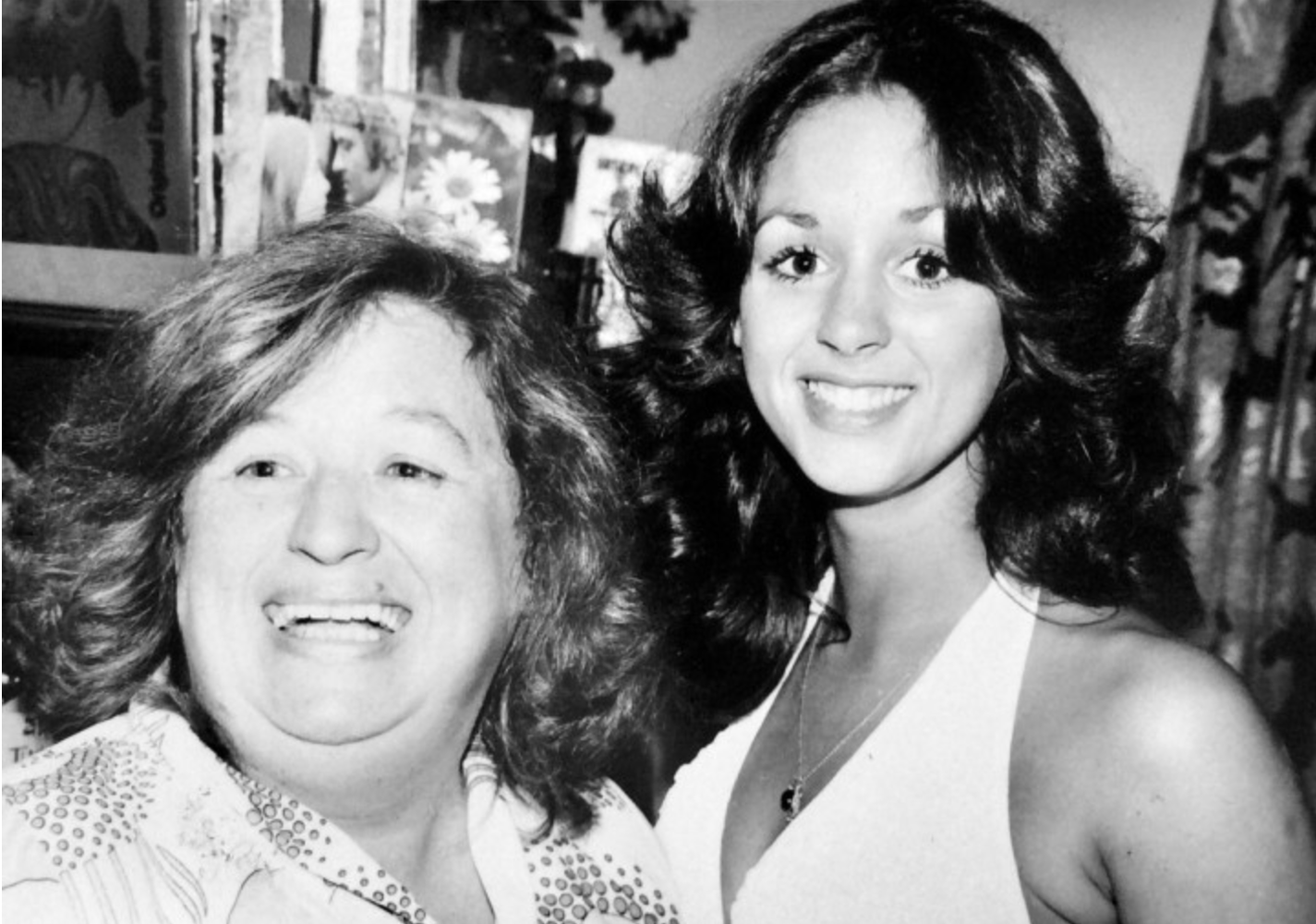
Harumi: I saw pictures of you modeling as a child. Was your mom like a stage mom?
Meredith: No, no. My mother was very shy and quiet and never expected anything of me except to help other people less fortunate and to be curious.
She had to leave school at 14 when her father left her mother. And so she taught herself everything and was always reading and thinking about the world.
And she encouraged me to follow my interests and supported my interest in learning and pursuing things that excited me.
And I always wanted to be a psychologist and a writer. And I did become both a psychologist and a writer.

Harumi: How did the child modeling start?
Meredith: I was a child model from three and a half to when I was twelve years old. I used to sing and dance when I was in the shops to entertain myself.
And there was a very famous international photographer called Athol Shmith and he and his wife Bambi saw me and approached my mother.
It was a relief for me that I could do something to help bring in some income.
And it wasn't until much older with the MBTI that I understood it's because I’m a “performing INFP.”
In fact, a lot of actors are INFP.
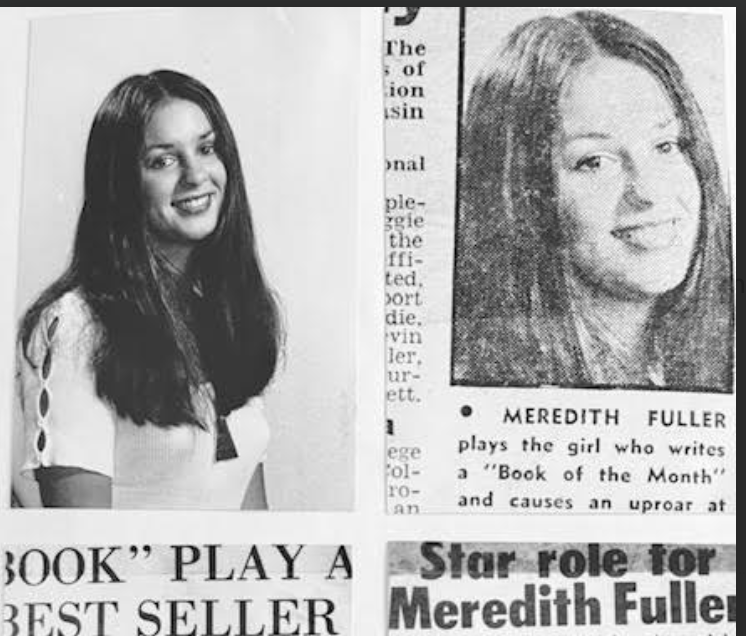
Harumi: Wow interesting. So performing met your need for creativity. So that's why you also enjoyed modeling and acting because it met that need as well.
Meredith: I did the modeling and the acting and I loved it, but then I liked to come home and read.
I also have a brother who is ISFP. He left home and now lives in Byron Bay which is where the hippies live.
Harumi: And your father?
Meredith: Well my father, he was problematic. He was ESTP and left my mother when I was three.
My father is actually half-Chinese. His mother was Chinese and married a British man in Shanghai.
And when there was the war in 1941 he was placed in Stanley Prison and his family was evacuated from Hong Kong and put on a boat and ended up in Melbourne.
And that is where my father who was ESTP met my mother.
My mother was living with her mother who had also been deserted by her husband who was also ESTP like my father. And so my father was happy to stay with my mother in her house with her mother.
My dad had no intention of providing a home and did not contribute financially.
Harumi: Were you close to your grandmother?
Meredith: No. I had trouble fathoming her interests.
My grandmother was ESTJ and she was always gardening and loved math and going to work in a post office and always wanted to run everything.
She was very organized. And my mother was chaotic, like me.
Harumi: Do you have memories of your father when he was living with you?
Meredith: Yes, and it was terrible. He was very violent.
Harumi: Do you feel like that shaped how you viewed the world?
Meredith: Oh, absolutely. Absolutely.
Harumi: And how did that shape how you view the world?
Meredith: I came to see how relationships were really important. And I had that sense that when I grew up and get married, I wanted to marry someone who was my equal and that we appreciated and valued each other, not just playing traditional roles.
Harumi: So tell me about your own marriage.
Meredith: When I was in primary school, I used to read all the classics and I used to think there was some really good, good men. And I thought, that's what I want.
Harumi: Which books and which men?
Meredith: Like Pride and Prejudice’s Mister Darcy.
And I just remembered there was that theme about there'd be bastards in the books. And then there'd be these lovely men. And I always was attracted to that idea of a really good, ethical, moral, thoughtful man.
And so my husband, Brian, an INFJ, is a psychotherapist and he spent 20 years running his practice in psychotherapy.
But before that, he ran client services at the guide dog association. So he was always into helping rehabs, animals, people.
Harumi Where did you meet Brian?
Meredith: I was doing my graduate diploma and I met Brian through his brother.
There was actually this journalist that I worked for, Dr. Morna Sturrock, and she was about 50 years older than me and she advised me, “ think about someone you like and ask them if they've got a brother.”
So while I was studying my graduate diploma in 1980 I asked my friend if he had a brother by any chance?
And he said, “have I got the brother for you. And actually I think you two would get on.”
So he organized a blind date for Brian and me.
And Brian’s this really sensitive man that wanted to help people and loved writing poetry and exploring meaning.
We just clicked and I knew that's my soulmate and he felt the same.
So we have been together ever since. We've been married 45 years.
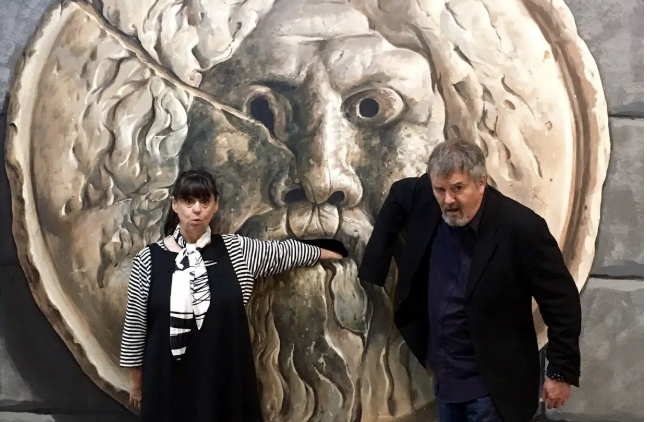
Harumi: Wow.
Can you explain a little bit more what you mean by you knew he was your soulmate?
Meredith: When we met, we both talked about meaningful issues from the start and we liked the same books and the same music and we had that desire to help people. And so it was like, there was that mutual respect, that mutual interest, that mutual understanding and, and it was just a knowing.
Harumi: Very interesting! So tell me what happened after you graduated and met your soulmate.
Meredith: After I finished my degree, I decided to do therapy for three or four years with Dr. Gertrude Spencer who was a psychiatrist and a Jungian dream analyst.
I then went on to work for a bit with the public service and then ran a career counseling service in a university.
And it was there that I observed that the ways in which people used the career counseling service were different.
Some people went simply to make money, but some people were looking for a career that was very meaningful.
After I encountered the MBTI I came to see that I was seeing type differences.
A year later, I met a psychometrician named Ian Kendall who was INTP. He worked at ACER, the Australian Council for Educational Research.
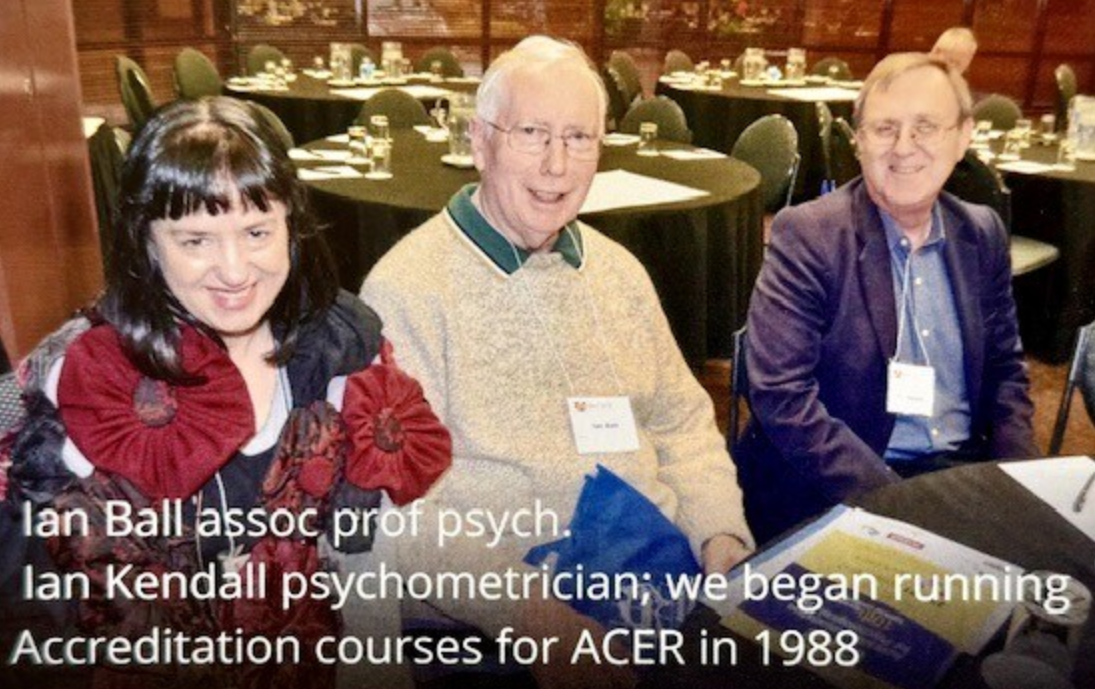
In Australia, in the 1980s, the government had a Training Guarantee Act. All organizations had to budget a certain amount of money on training.
And Myers-Briggs was new and it was positive. And so people started to become interested in workshops. And so a lot of people wanted accreditation to learn Myers-Briggs so they could run workshops.
ACER supplied resources and had a lot of material for tertiary institutions and education.
They wanted to start accrediting people and Ian asked if I wanted to join him.
Since I had just left the university to run my private practice, I agreed to come on as a consultant, and we designed the first type accreditation course.
Harumi: Tell me about the course that you designed.
Meredith: It was a five-day training course. Ian did all the mathematics and the statistics and I did the type theory worked with more of the interpersonal parts.
Then Ian decided to leave. And there were other people who came on board and we were not in philosophical alignment so I also left.
They tried for about a year to run it themselves, but they didn't have enough knowledge.
And that's when they invited Peter Geyer who is also INTP to come in and run the accreditation course.
There was also Mary McGuinness and David Freeman and other people who were running these accreditation courses around that time.
At one point, there were several organizations all running accreditation courses.
They all had different flavors. For example, David Freeman's course was very much business, corporate-oriented.
Some of the courses had more of an educational or spiritual component. Some of the courses were very much about group training.
There was tension about who was running what and who was taking other people's clients and all that sort of thing.
I didn't like any of that so I was happy to leave all of that.
In 2000 the Training Guarantee Act ended and then the need for trainings and accreditations went way down.
Harumi: How would you describe your flavor of training?
Meredith: Experiential and helping people to appreciate who's in the room with them.
In Victoria we hosted meetings and group activities.
We would host a dinner, like a murder mystery dinner themed “Who killed Jung?”
And we'd have all these people come. They'd be given tasks, and they had to work in pairs and try and run up all around the house and try and figure out who's killed Jung?
And then of course the first conference was run in 1991 as MBTI supported by ACER and Mary McGuiness.
David Freeman, who was keen to get something started on MBTI, worked to create what became AusAPT, the Australian Association for Psychological Type.
From 1992 onwards there were biennial conferences.
And it grew because there were hundreds of people being trained and hundreds of people joining the association.

We had hundreds of people turning up to conferences. It was really huge in that initial early uptake period of time. There were lots of trainers, psychologists, social workers, teachers, HR people.
Harumi: And why did you continue to be involved?
Meredith: Well, I love the instrument. I love the theory.
I've been using it for 45 years.
I actually made a type table of all the clients I ever saw, because I saw thousands of people.
And it wouldn't surprise you to know, the types that camee for career counseling were mostly INFP, ENFP and INTP types.
The next highest were INFJ, INTJ and ENTJs were sent by their organizations.
I rarely saw any STJ and STP types.
I was helping people who were in distress, who didn't fit in at work, who had difficulty in relationships, who felt lost, who felt different, who felt something wasn't right with things.
AusAPT was full of intuitives.
In Australia, most organizations, whether they were business or anything, really, they had a lot of Sensor types.
And here was a group of people fascinated with people and theory and understanding people and making the world a better place. So it just fitreally well.
So I've been in it since 1992 and in Victoria AusAPT we hosted meetings and fun group activities.
Harumi: What do you think is the role that intuitives play in society?
Meredith: They dream of what could be and they want to explore what could be. And they have hope for possibilities and future.
And so they'll go on these journeys of exploration and their curiosity knows no bounds.
Elizabeth Murphy who is INFP was a keynote speaker at an AusAPT conference in the early 2000s.
And back then she was saying, we've got to look at how we raise our children.
And she said, “we're going to be in trouble because we don't value and put money and time and effort into this incredibly important activity of raising children.”
And that she was very prescient because we certainly saw that come to pass.
Harumi: If we could go back in time, what do you think Australians could have done?
Meredith: I feel that one of the problems we have in Australia is that it's very patriarchal.
So women worry about raising children and men don't. So we had very few males who were primary school teachers.
Another thing that I suspect that AusAPT should have done was pointed out by another keynote speaker.
Peter O'Connor was also a keynote speaker in the early 2000s. Peter was a Jungian therapist.
And he said, “your organization will fail because you don't have enough SJ people in your organization.”
He said it won’t last and will fall apart.
And that was prescient because that's what happened over the years.
As you know we went from having hundreds of people and so much activity.
Most people had been trained in Myers Briggs, but they didn't keep going, even though we started looking at further training.
And Sue White, one of our AusAPT members, and Peter Geyer, they both were offering training in step two and step three. But people didn't want to take the more sophisticated development.
And people moved on to something new and shiny and quick.
So we've lost a lot of people. And a lot of people died too of course.
And so by the time that COVID came around AusAPT had lots of presidents and treasurers and office bearers. And in 2017 Terry Connellan became the president. And she was very good at technology and marketing.
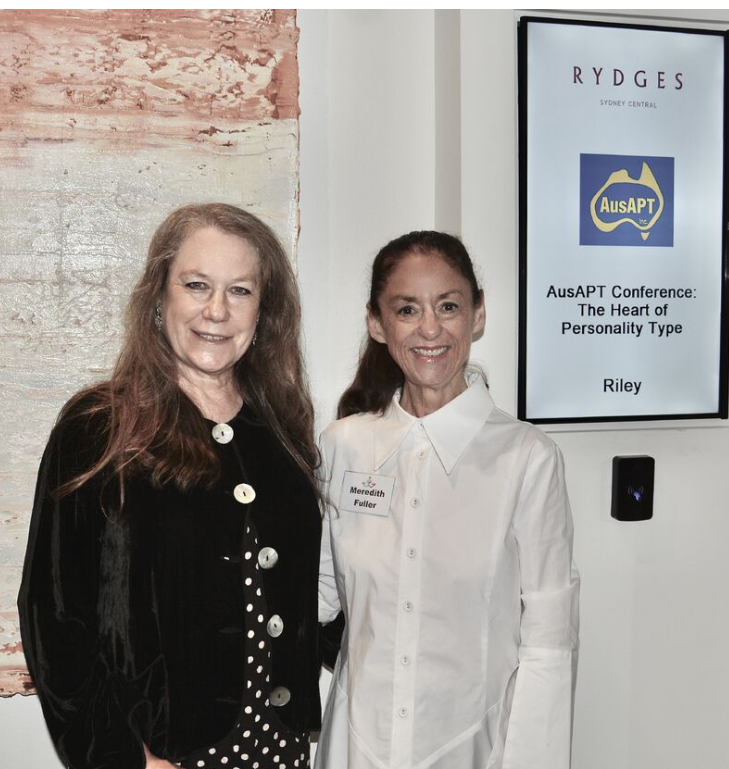
And she created the Zoom conferences. And they were a big success. So there was some accommodation for new, different technology.
Harumi: And then now we have unfortunately reached the time when AusAPT is closing up. Can you tell me more about your work with family violence and how that fits with your knowledge of personality type?
Meredith: Yeah, absolutely.
I grew up in a violent family, and I felt I really wanted to help women understand what the warning signs were, and enable them to have choice. I’ve often been struck with how people just partner up with someone without asking in-depth questions about each other.
Who am I? How are we together? How would we resolve conflict? What do you believe about this issue, that issue? They don't even talk about if they want children or not. And they just sort of get married.
I wanted to help people look at how they can make good choices about their relationships.
I also found that people, often men, express their feelings through their shame, and their need for power, and their need for control, and are violent.
We need men to be able to articulate how they feel, and have the language to talk about how they feel.
They often don't. And the only way they know how to express their feeling is with violence.
I think a lot of young men now, like teenagers and men in their early 20s, they're great because the young men and women, a lot of them are saying, we don't want those old relationships and those old structures. We want to be equal. So if he wants to stay home and raise children, and I want to go to work, that's what we'll do.
Or we'll both work part-time and we'll both share parenting. Or we'll both travel. Or we might be a partnership, but we don't have to live together.
They're really looking at different models. And a lot of the young men are now able to say, call out their mates. If they're being sexist, showing power and control, it's inappropriate.
And I think that's fantastic. Really great. So I see that we're making some inroads, but it's hard.
And it's hard for males because we were such a rigid society. It was like, God, you don't want to be a feeling male. They wanted an ISTJ male.
That was the Australian males. They've got to be ISTJ, ISTP. That's the go, or ESTJ.
And so it's been really exciting more recently that we've got a lot more men who are able to embrace their creativity and have a life of their heart, which was not really acceptable if you go back the last few generations. So it's perhaps men engaging in, even if they are not like NF types or whatever, engaging in kind of creative works or to practice expressing their feelings. Those are good things that are helpful for people.
Harumi: At the AusAPT conference in Brisbane. You presented on family violence.
Meredith: Yes, I looked at three types of male violence and how different they were.
There's two types of violence most people are aware of.
The first one that we're all aware of is coercive control. And that's the typical power and control violent male who murders.
Harumi: The typical type that commits this type of violence is ESTJ, I think you said, in your presentation:
Meredith: Yes that’s right, ESTJ.
And then there's that drug, alcohol, substance abuse type of person. They’re out of it and they are not aware of what they are doing.
They are mentally ill or affected by a substance and people get killed.
Typologically, like INFP or ISFP or INTP or ISTP.
One of the things we know about addiction is that a lot of NF and SF people are more likely to be addicted more of the time.
But then there is a third type of violence.
I don't know if you find this in America and Japan, but there are a lot of men who are lacking in agency and responsibility.
They tend to be people who just want to go along with whatever's happening. They often marry or partner up with women who are high achievers and who have great jobs.
Often they'll stay at home or they might be musicians or artists who don't want to necessarily earn a lot of money or they are always losing their jobs and then they can't be bothered.
And they go along and everything's fine because they'll just do whatever. But then something will trigger them.
And often it's when the rules change. Their partners want to have children or they don’t want to work their high-powered job anymore and want the man to work.
And then the men feel cornered and invaded. And often when they're pushed, they'll kill the woman and the children, or sometimes just the woman.
And the neighbors will say, “He was such a nice person. Where did that come from?”
It's this murderous rage because they don’t want their life of ease to change and they don't want to take any responsibility.
And they become overwhelmed and then they just kill the partner.
Harumi: Is there a pattern with certain types?
Meredith: They are often introverts.
So we come back to what Elizabeth Murphy said about our babies and our children.
I think it's great now that we have a lot more men who are becoming early childhood development teachers and we've got trying to get more men into primary school teaching.
Harumi: Why do you think it is important for men to be involved in early childhood development areas?
Meredith: Because children need to see female and male modeling.
Women are rewarded for relationship and discussion and talking and being vulnerable. And men are rewarded for being silent and stoic and strong.
Child-rearing is not just women’s work.
Our society shouldn't be about who makes the most money.
We need to have more men involved.
We need to encourage that.
Harumi: One last question, why did you do the murder mystery parties?
Meredith: I hear a lot of people in the type community talk about type, but they don't imbibe type.
You see a lot of people talk about type without living it and reflecting on their own behavior.
And I've always thought this isn't good.
We would gather about 20 members and we would do these activities to get them to look at their behavior.
We would pair them up and then investigate the murder mystery and then they would reflect back on how they behaved in a team trying to solve problems. And it's a bit of a shock to them.
So when you get people to do an activity that's a real activity and it's competition and there's urgency and whatever, you start to see the behaviors and you can feed it back to them. And then they start to get it.
You don't just talk about it. You’ve got to do the work.
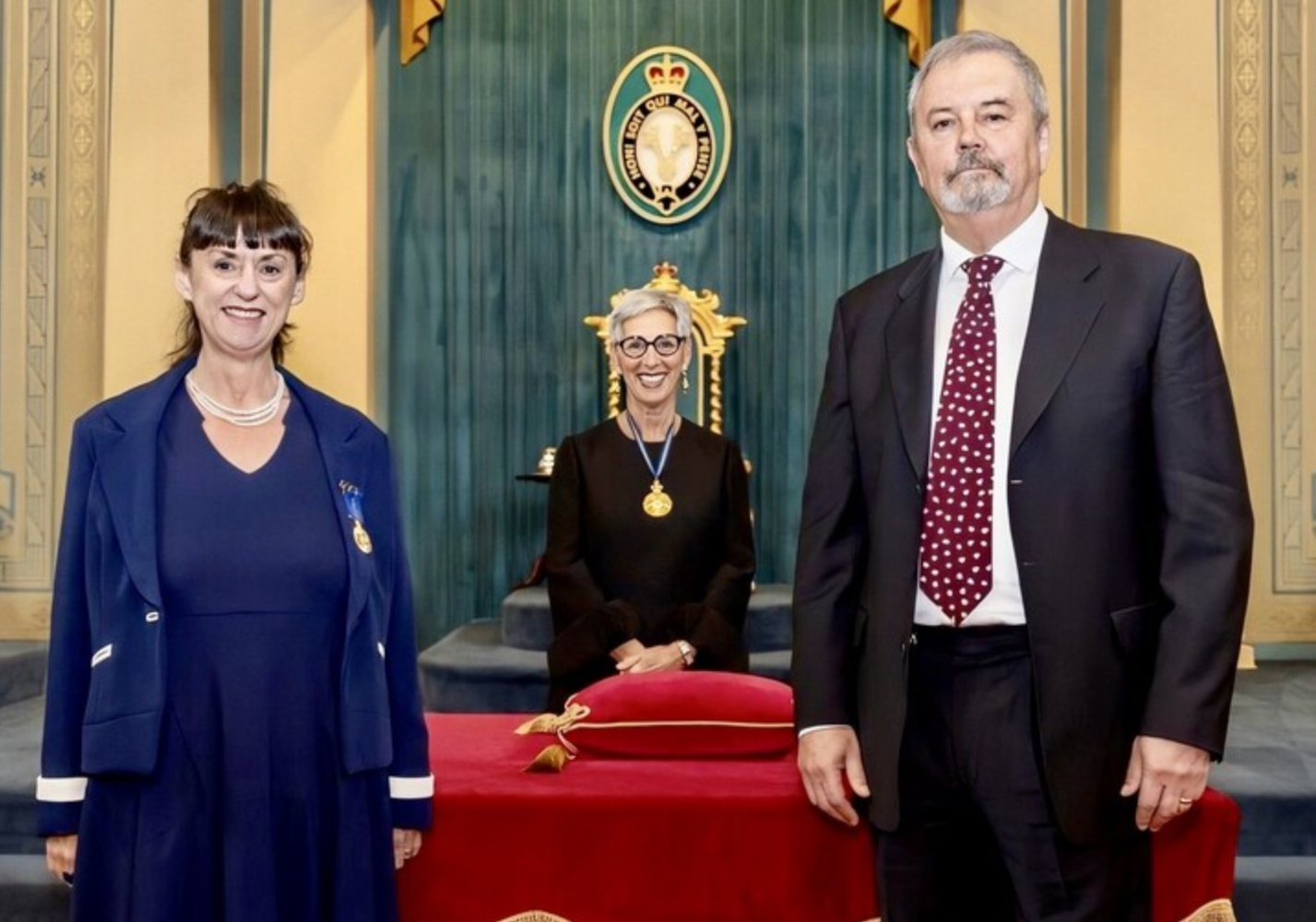
Interviewed and written by Harumi Gondo

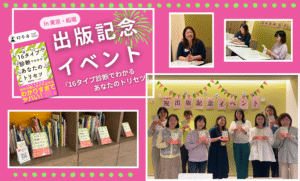
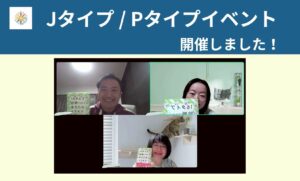
“Type Interview 9 / Type Story : メレディス・フラー (INFP)” に対して1件のコメントがあります。
コメントは受け付けていません。